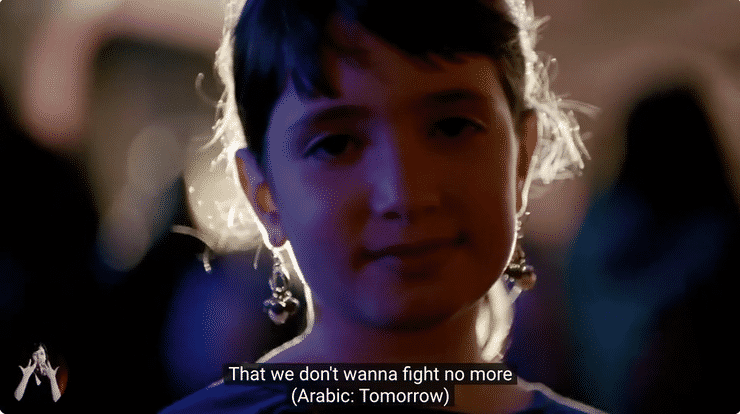How to Talk to Your Kids About Violence, Conflict, and War
There are some really tough things happening in the world, and as parents (and educators), we want to help our kids understand and feel safe. When headlines feature stories of conflict or war, it’s common for emotions like fear, sadness, anger, and anxiety to surface, regardless of where you live. During such times, children often turn to their parents and teachers for a sense of safety and reassurance. Here's a simple guide to having these difficult conversations with your children/students.
When is the right time to have the conversation?
You might be wondering when is the right time to talk to your kids about this. There's no perfect age, but if you think they might hear about it from friends or online, it's a good idea to bring it up. Being truthful is important. When they ask questions, it means they're ready for honest answers. Use real words like "war," "rockets," and "death." Kids are hearing these words and need to understand what they mean.
Choose an appropriate time and place to discuss the topic, where your child can freely express their thoughts and feelings, like during a family meal. Avoid bringing it up just before bedtime. Talk to them slowly, look them in the eyes, don’t give more information than they’re asking for, and let them know you're there for them. This connection makes them feel safe.
The Conversation may start like this…
"I need to talk to you about something serious and sad. You might hear about it from friends or on TV. There's a war happening in the Middle East. War means people are not using words to solve their problems; they're using weapons, and it's causing a lot of harm. If you hear anything scary or confusing, remember I'm here to talk about it."
Here are some things to keep in mind:
1. Take Care of Yourself
These conversations can bring up strong emotions, so looking after yourself is essential. Remember that you can better support your child if you are also coping effectively. Children are sensitive to their parents'/teachers’ reactions to the news, so maintaining a composed and calm demeanour is helpful.
If you're experiencing anxiety or distress, make time for self-care and reach out to family or friends for support. Remember to take breaks and limit how much news you watch.
2. Make Space for Feelings
Express your feelings and let your child express theirs, even if it's silence. Show them that you understand it's heavy. Remember that children often mirror their emotions from adults, be cautious about sharing your own fears and strive to remain calm while doing so. Make sure to share self-care strategies that you are using to cope with the stress and worries (i.e. like finding ways to help people directly impacted by the war).
Share and ask curiosity questions, “I’m feeling scared and sad right now.” "How does talking about this make you feel?" or “What questions do you have?” It's okay if they don't say much. You can say, "I know, it's a lot to take in." For younger children, creative activities like drawing or storytelling can help open up a conversation.
Avoid downplaying or dismissing their concerns. Even if their questions appear extreme, such as “Are we all going to die?” reassure them that such an outcome is highly unlikely. Simultaneously, try to understand their specific fears by acknowledging and validating their feelings and assure them that whatever they are experiencing is entirely natural.
3. Encourage Ongoing Dialogue (You Don't Have to Have All the Answers)
It's okay not to have all the answers. We all have questions, and that's normal. Promise to share what you know when you know it.
Explain, "You have great questions, and I wish I had all the answers. I don't, but I'll tell you what I find out. We can keep talking about this. In fact, it's important because you might have more questions or feelings. You can ask me anything and I promise to be honest with you."
4.The Power of Being Present
Your words may not feel like enough, but your presence matters most. Hug them, sing their favourite songs, or read their favourite books. They'll remember how they felt with you more than what you said.
It may sound something like this: "It’s okay to be scared. You're not alone, we’re here for each other and we can be brave together."
5. Focus on the Helpers
It's important for children to understand that individuals are demonstrating courage and kindness by helping others during times of conflict. Share positive stories, such as accounts of first responders aiding those in need or young individuals advocating for peace. My daughter and I loved signing this song of peace together.
Encourage your child to actively participate in positive actions, whether it's creating artwork, writing poems for peace, or engaging in local fundraisers and petitions. Taking even small steps can offer significant comfort.
Make sure to reassure your children as much as possible that they are safe from direct harm, emphasising the global efforts to resolve conflicts and establish peace.
Here at Positive Discipline UK and with the support of the PDA, “it is our greatest hope that the Positive Discipline/Adlerian principles when applied in our homes, schools, communities, and businesses can transform our world, moving from power over to the power of connection and belonging.”
For more information and age specific language visit Common Sense Media

